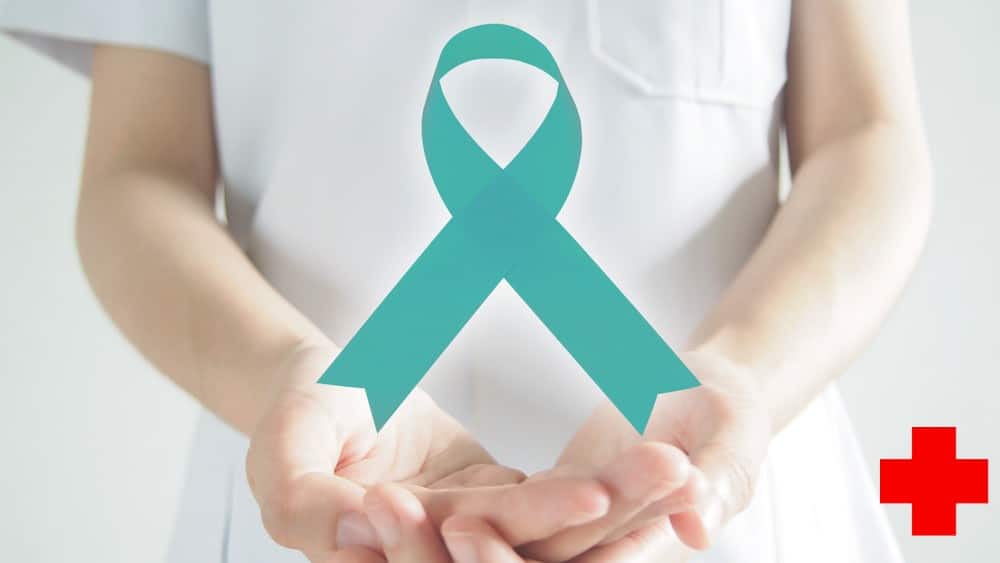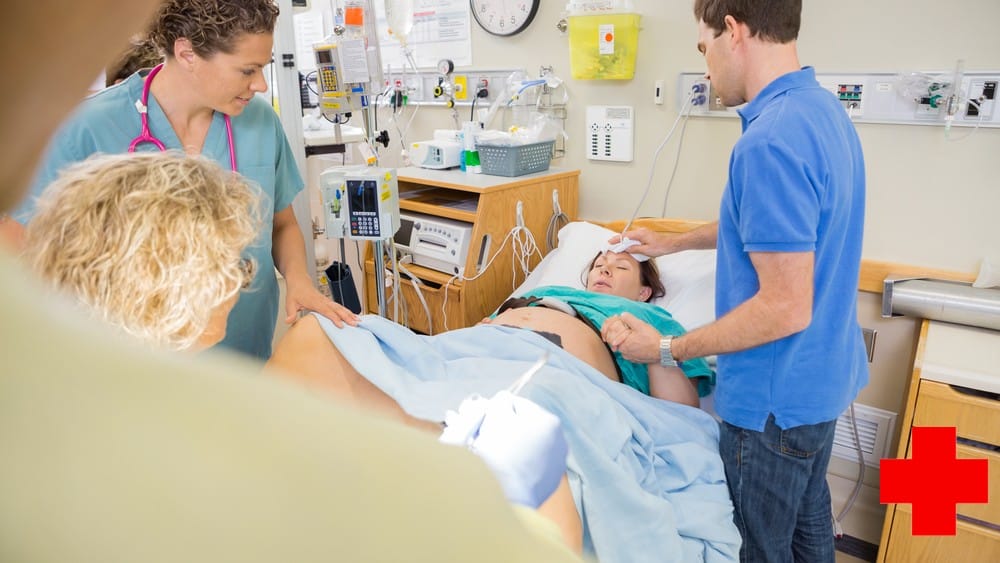Hi there! Welcome to Nurse Code!
In this article, we’ll guide you on what it takes to become an Informatics Nurse with a detailed step-by-step process.
By the time you are done reading, you’ll have a clear picture of what is required to obtain the Nurse Informatics credential.
We will discuss in detail the following:
- The step-by-step process of becoming an Informatics Nurse
In a nutshell, we’ll take you through the step-by-step process of becoming an Informatics Nurse.
Let’s jump straight to step 1!
Step 1: Earn a Bachelor of Science in Nursing (BSN) Degree

The first step to becoming an Informatics Nurse is earning a Bachelor of Science in Nursing.
The key at this stage is signing up for a BSN program from an accredited institution.
A Bachelor’s Degree in Nursing programs takes four years to complete.
The coursework covers integral parts of the nursing practice, including psychology, microbiology, pharmacology, medical and surgical care, and health assessment.
Suppose you have an Associate Degree in Nursing (ADN).
It will be best to sign up for an RN-to-BSN program to earn your bachelor’s degree.
Usually, these transition programs take two years to complete.
On the other hand, if you have an undergraduate degree in a different field, you can enroll in an accelerator BSN program and earn a Bachelor of Science in Nursing within 12-18 months.
The BSN program usually comes with the theory coursework and clinical practice, requiring students to meet specific clinical practicum hours.
As you wind up your degree program, consider pursuing a graduate program.
A Master of Science in Nursing (MSN) with a specialization in Health Informatics is a perfect fit.
But, you can also opt for a Master’s in Health Informatics.
Postgraduate education is not mandatory to become an Informatics Nurse, but it may be a requirement for some high-ranking positions.
According to the Healthcare Information and Management Systems Society (HIMSS) 2020 workforce survey, 51% of Nurse Informatics have a master’s degree.
This category of Nursing Informatics earns more than its counterparts with a bachelor’s degree.
Further, as you gain more experience in the field, you can pursue a doctorate degree.
Step 2: Pass the NCLEX-RN Licensure Exam

Once done with your undergraduate nursing program, the next step is to become a Licensed Registered Nurse.
You must pass the National Council Licensure Examination for Registered Nurses (NCLEX-RN) to get your state licensure.
The eligibility requirements for this exam vary depending on the state.
For that reason, it will be best to inquire before enrolling in this licensure exam.
The exam tests critical thinking and competency based on the nursing practice.
Passing the NCLEX-RN exam is the ticket to applying for the RN license in your state.
Step 3: Gain Experience as a Registered Nurse

The first two Nursing Informatics requirements are just the beginning of your journey to becoming an RN Informatics.
Why is that?
You’ll need a bachelor’s degree and experience as a Licensed Nurse to be eligible for a Nursing Informatics certification.
Not only that, many RN Informatics certifications require students to have experience in Informatics Nursing.
There may also be specific clinical hours and practicum requirements you must meet.
So, the next obvious step is to venture into employment.
At the bare minimum, you should have two years of full-time experience as a Registered Nurse.
You need an equivalent of the same if you work part-time.
As you work to gain experience as a Registered Nurse, you also want to get your feet wet in Nursing Informatics.
For that reason, seek employment in healthcare facilities with a fully functioning Health Informatics department.
It’s recommended that you familiarize yourself with the Nursing Informatics certification requirements early on to factor them in when searching for a nursing job.
Step 4: Earn Informatics Nursing Certification

The next step in your journey to becoming an Informatics Nurse is to earn an Informatics Nursing certification.
There are several options you can explore when it comes to cert providers.
Top on the list of Nursing Informatics certifications is the American Nurses Credentialing Center (ANCC).
ANCC is renowned for its Informatics Nursing Certification (RN-BC).
To be ANCC Nursing Informatics certified, you must meet the following eligibility requirements.
Foremost, you must have a bachelor’s degree or higher education qualification.
Next, candidates must be active Registered Nurses with two years of full-time work experience.
Further, ANCC candidates are required to attain 30 hours of continuing education in Informatics Nursing within the last three years.
Apart from these three mandatory requirements, you must meet one of the following requirements:
- Not less than 2,000 hours working in informatics nursing within the last three years – If you don’t have the one year of experience, the next option is
- A minimum of 1,000 hours of experience in Nursing Informatics within the last three years and an additional 12 semester hours credit in a graduate healthcare informatics course
- Complete a graduate program in Nursing Informatics – the program must include not less than 200 hours of supervised clinical practicum
If you meet these requirements, the next step is to enroll, get your “Authorization to Test Notice” and schedule your exam date within the 90 days window.
The ANCC Nursing Informatics certificate expires in five years.
Apart from ANCC, you can pursue your Nursing Informatics certification with Healthcare Information and Management Systems Society.
HIMSS offers two Nursing Informatics specialist certifications:
- Certified Associate in Healthcare Information and Management Systems (CAHIMS)
- Certified Professional in Healthcare Information and Management Systems (CPHIMS)
CAHIMS is specifically designed for healthcare professionals in their early careers, although experienced clinical Informatics Nurses can also find it useful.
To qualify for this certification, you must have a high school diploma and at least 45 hours of continuing education in digital health, healthcare information technology, or any other topics related to Informatics Nursing.
This certification has a three-year recertification circle.
CPHIMS is designed to help experienced Nurse Informatics specialists further hone their skills in healthcare technology.
To be eligible for this certification, you must meet one of the following requirements:
- Have a bachelor’s degree from an accredited nursing school, which can be a college or university, and five years’ experience in information and management systems (three of the five years should be in the healthcare setting)
- Ten years of experience in information management (eight years should be in a healthcare setting)
- A graduate degree from an accredited college or university and three years of experience in information and management experience (two years should be in a healthcare setting)
CPHIMS expires after three years.
These are the main Nursing Informatics certifications.
So, it will be best to go through job listings within your area to find the certification that most healthcare facilities prefer before you sign up for a certification program.
Once you have earned a certification, you are one step close to launching your career in Nursing Informatics.
So, step forth and dip yourself into entry-level Nurse Informatics jobs.
But, depending on your experience and qualification, you can aim for advanced Health Informatics jobs for Nurses.
Step 5: Seek Employment Opportunities

With a state RN licensure and a certification, it’s time to comb the job market and seek employment opportunities.
Often, you’ll find Informatics Nurses working in hospitals, medical clinics, universities, state and federal government, production solution technology companies, healthcare information, consulting firms, and insurance companies.
These are the target areas to seek employment.
Informatics Nurses’ main job involves using data to analyze patient care programs and improve patient outcomes.
Step 6: Maintain Your Certification through Continuing Education

As we mentioned earlier, Informatics Nurse certificates have an expiry date.
For that reason, certified Informatics Nurses must recertify to maintain their certification.
Recertification requires one to meet a specified continuing education credits or retake the certification examination.
For CEU, the agency will specify which Nurse Informatics education and third-party providers are accepted.
The key is to have all the recertification information once you earn your certification.
This will help you plan how to earn your CEUs in good time.
Conclusion

Nursing Informatics is a growing career.
It’s particularly an excellent career path for nursing professionals who are into technology and have strong problem-solving skills.
And so, if you enjoy technology as much as you enjoy interacting with people, perhaps you can consider becoming a Nurse Informatics Specialist.
The steps to becoming one are straightforward.
Suppose you are already in a nursing career.
Half of the job is already done.
But if you are not a Nurse, you can get started today, and in no time, you’ll be on your way to exploring a new field in the healthcare industry.
That said, All the best in your journey to becoming an Informatics Nurse.
FAQs

Can Nurse Informatics work from home?
Like many IT jobs, Informatics Nurses can work from home. However, at the start of a job, they’ll need to be in an office set-up to set up new technology, configure systems, train staff, and get everything up and running. From there, it’s possible to work remotely with occasional office visits.
How long does it take to become a Nurse Informatics?
It takes around 5-7 years to become a Nurse Informatics. Nurse Informatics education starts with earning a bachelor’s degree and becoming a Registered Nurse. You should also gain experience in patient care and Informatics Nursing. Then proceed to earn the Nursing Informatics certification.
How to become an Informatics Nurse Specialist?
– Earn a Bachelor of Science in Nursing (BSN) degree from an accredited institution.
– Pass the NCLEX-RN exam to become a Licensed Registered Nurse
– Gain experience in Nursing and Informatics
– Enroll in a Nursing Informatics certification program
– Earn your certification and start looking for employment in Nursing Informatics.
Is a Nursing Informatics degree worth it?
Yes! Absolutely. Whether it’s a Master’s or Doctoral, a Nursing Informatics degree adds immense value to your career. Some Informatics Nursing jobs require candidates to have a graduate degree. As such, it adds value to your resume and gives you an edge in the job market.
Is Clinical Informatics stressful?
Here is why Nurse Informatics are stressed. The constantly changing information system can be challenging to keep up with, learn and disseminate that information to other healthcare workers. Further, poorly functioning systems can be a cause of stress and the risk of a security breach is a lot to deal with.
Is Nurse Informatics a good career?
The U.S. Bureau of Labor Statistics projects that the average Nurse Informatics salary is $103,430. BLS gives an hourly rate of $48.72. Nurse Informatics are well-compensated. Additionally, according to HIMSS 2020 workforce survey, three in four Informatics Nurses are satisfied with their jobs.
What does a Nurse Informatics do?
Nurse Informatics roles are mostly technical. Here is an overview of their roles:
– Monitor data and use the same to monitor patient care initiatives.
– Update software tools and electronic medical records
– Educate the healthcare staff on information systems and new workflow systems.
What is the future of Nurse Informatics?
According to the BLS, there’ll be a 32% increase in employment opportunities for Nurse Informatics between 2020 and 2030. This translates to 51,800 employment opportunities annually. As many healthcare facilities adopt electronic health records, the demand for Nurse Informatics increases.
What are the examples of Nursing Informatics?
There are several health information systems for Nurse Informatics:
– Patient Portal
– Electronic Medical Records (EMRs)
– Telehealth
– Healthcare apps
Tools that are currently explored and adopted in the future:
– Voice Dictation
– EHR Aler Optimization
– Predictive Analytics
– Syndromic surveillance
– Clinical Image Capture
What degree is needed for Nurse Informatics?
Nurse Informatics must first be a Registered Nurse. For that reason, a Bachelor of Science in Nursing is the ideal program. Once one has earned BSN, one can pursue a Master’s Degree in Health Informatics or any other related field.
What is the difference between Nursing Informatics and Computer Science?
Nursing Informatics combines nursing science with computer science and information science. It’s applied in several areas of nursing practice. Nursing Informatics help provide high-level patient care. On the flip side, computer science is about the practical and theoretical application of computers. It focuses on software, hardware, and algorithms.
What are the requirements to become a Nurse Informatics?
– Must have a bachelor’s degree from an accredited college or university.
– Be an active Registered Nurse
– Have experience in a healthcare setting
– Have an Informatics Nurse certification
These are the general requirements, but employers may have additional requirements depending on their needs.
What is the average salary for a Nurse Informatics?
According to Payscale.com, a Nurse Informatics earns $83,408 per year. Their salary ranges from $62k-$117k. According to the platform, the hourly rate is around $40. The actual amount Nurse Informatics takes home depends on their level of education, years of experience, industry, and employer.









